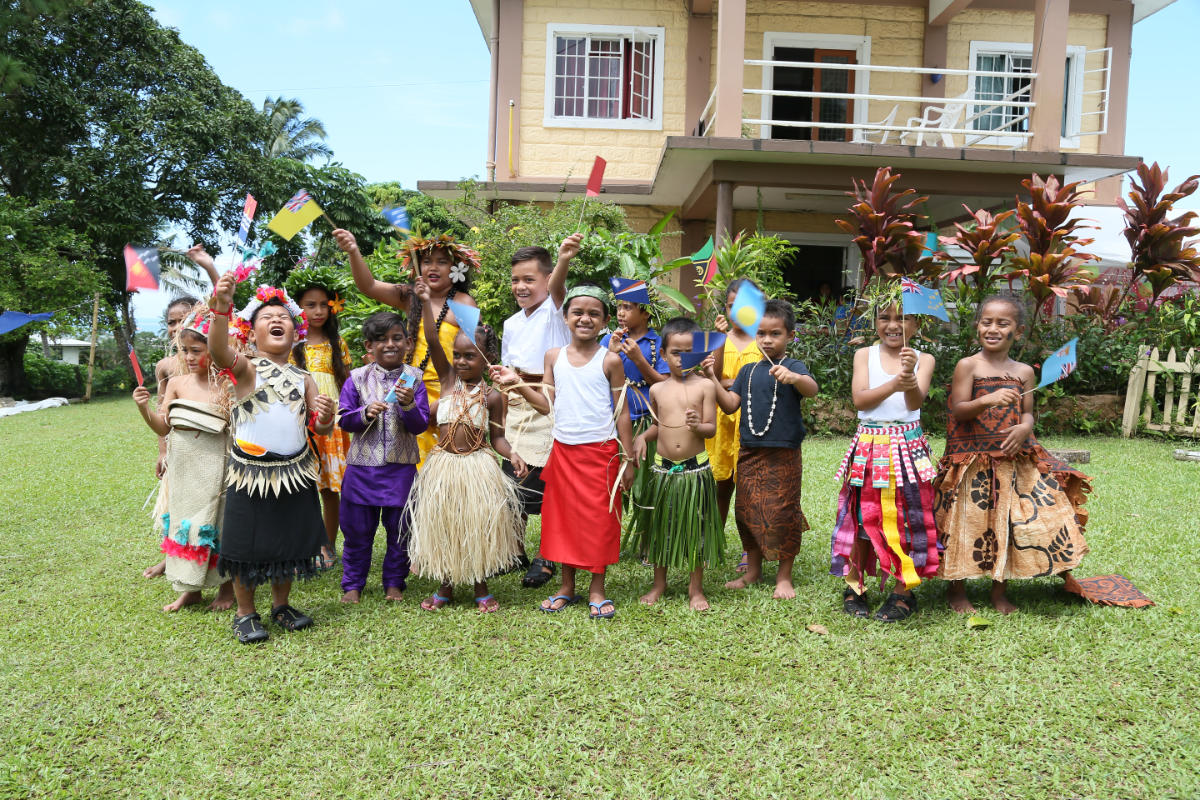Early moments matter for every child
“The Sustainable Development Goals recognize that early childhood development can help drive the transformation we hope to achieve over the next 15 years.” Ban Ki-Moon, Former UN Secretary-General, September 2015
A child’s brain develops rapidly during the early years – from conception to the age of five. More than 1 million new neural connections are formed every second. This pace of development is never repeated again.
For children to realise their development potential, their growing brains need multiple inputs including: health, nutrition, responsive caregiving, security and safety, and early learning.
Positive experiences in the early years set children up for higher educational achievement, lifelong health, and future productivity.
ECD requires a whole-of-government and whole-of-society approach. Children and their parents benefit from a comprehensive, multi-sectoral package of support.
In the Pacific, parents, families and communities provide a multi-generational circle of care that help young children build resilience that will last a lifetime.
Nurturing care
To reach their full potential, children need the five inter-related and indivisible components of nurturing care: good health, adequate nutrition, safety and security, responsive caregiving and opportunities for learning.
In the first years of life, parents, intimate family members and caregivers are the closest to the young child and thus the best providers of Nurturing Care. This is why secure family environments are important for young children. In order to provide caregivers with time and resources to provide nurturing care, policies, services and community supports need to be in place.
Select a component to learn more
Click or tap on an icon in this diagram to learn more about the components of Nurturing Care.
Adequate nutrition
Refers to maternal and child nutrition. Why both? We know that the nutritional status of the mother during pregnancy affects her health and wellbeing and that of her unborn child. After birth, the mother’s nutritional status affects her ability provide adequate care to her young child.
Responsive caregiving
Refers to the ability of the parent/caregiver to notice, understand, and respond to their child’s signals in a timely and appropriate manner.
Considered the foundational component because responsive caregivers are better able to support the other four components.
Security and safety
Refers to safe and secure environments for children and their families. Includes physical dangers, emotional stress, environmental risks (e.g., pollution), and access to food and water.
Opportunities for early learning
Refers to any opportunity for the baby, toddler or child to interact with a person, place, or object in their environment.
Recognizes that every interaction (positive or negative) or absence of an interaction is contributing to the child’s brain development and laying the foundation for later learning.
Good health
Refers to the health and well-being of the children and their caregivers. Why both? We know that the physical and mental health of caregivers can affect their ability to care for the child.
ECD in the Pacific
The Pacific region is home to about 1.7 million children under the age of five spread across an area equivalent to 15 per cent of the earth’s surface.
Data for the Pacific show young children deprived of opportunities to develop to their full potential. In a measure by the World Bank called the Human Capital Index, young children being born now in the Pacific are estimated to achieve less than half of their development potential due to limited opportunities in health and education.
Influenced by the growing science of early development, Pacific island countries and territories have in recent years begun to prioritise the early years. In 2017, 15 Pacific Island governments endorsed a nine-point action plan, the Pasifika Call to Action on ECD, to guide national multi-sectoral efforts for the optimal development of young children, and to support progress towards achievement of the 2030 Sustainable Development Agenda. In 2019, the same 15 Pacific island governments re-committed to providing a regional, collaborative approach in ECD and established the Pacific Regional Council for ECD, with representation of Ministers of finance, education, health and social welfare.
Click here for an implementation guide to the Pasifika Call to Action on ECD.
ECD and the Sustainable Development Goals
The Sustainable Development Goals (SDGs), created in 2015, are a shared plan for peace and prosperity for people and the planet, now and into the future. The SDGs work together and are highly interlinked with ECD.
ECD has a strong multiplier effect, which can transform individuals, communities and societies and contributes to achieving all of the goals.
Goal 4, Quality Education, makes specific reference to ECD in target 4.2: “By 2030, ensure that all girls and boys have access to quality early childhood development, care and pre-primary education so that they are ready for primary education.”
ECD interventions also contribute to achieving many other SDGs, including goal 1 (no poverty), goal 3 (good health and wellbeing), goal 6 (clean water and sanitation) and goal 16 (peaceful and inclusive societies).
Click here to know more.
